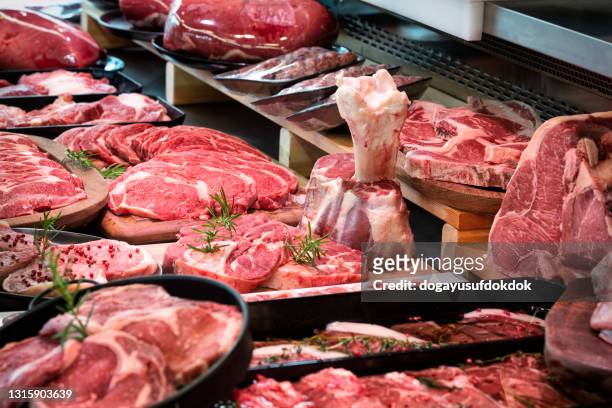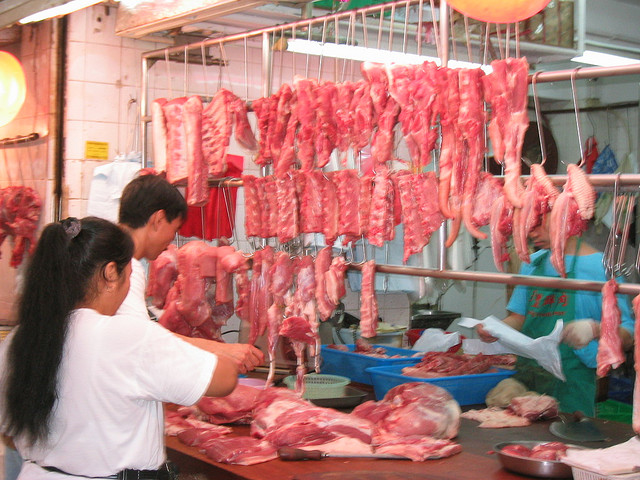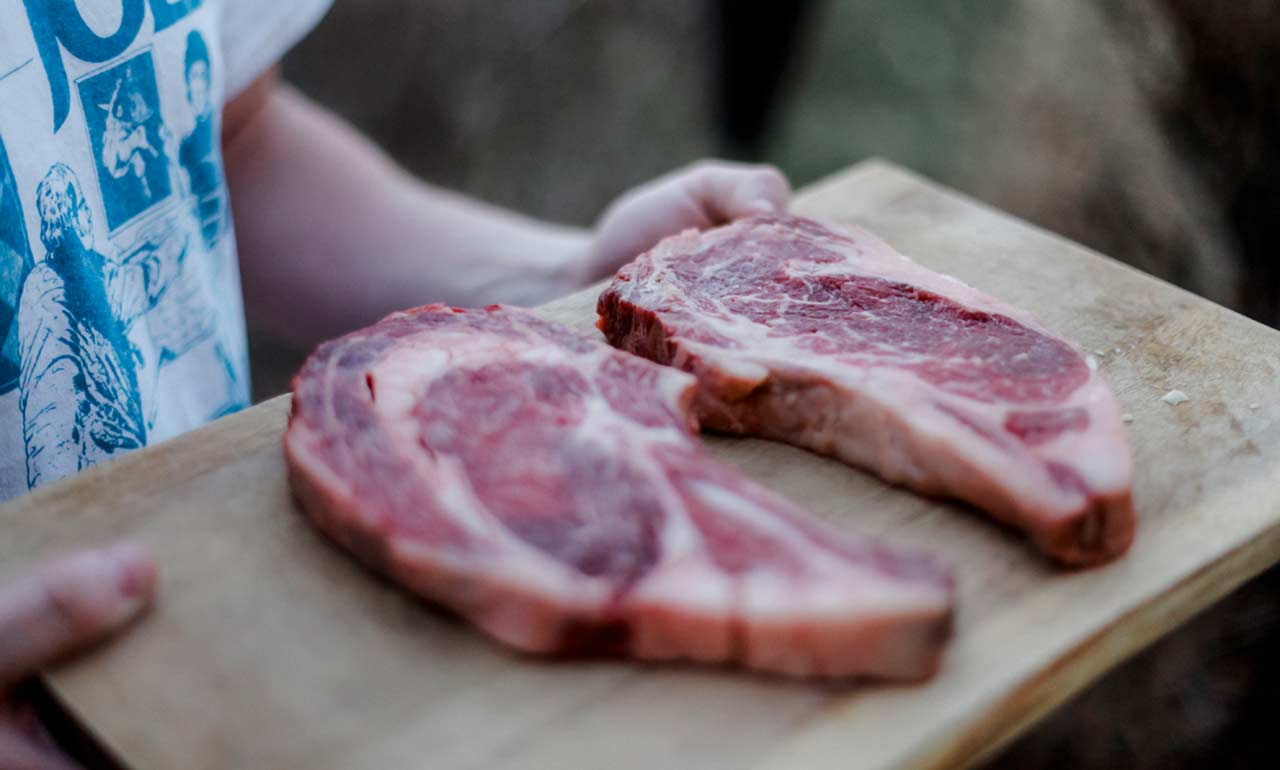Exceptional Service and Quality at Bagley Meat Market Edwardsville IL
Exceptional Service and Quality at Bagley Meat Market Edwardsville IL
Blog Article
Why Shopping at a Regional Meat Market Guarantees Fresh, High-Quality Cuts
Buying at a regional meat market supplies distinct advantages that commonly go undetected by customers accustomed to bigger retail chains. These markets provide straight accessibility to fresh, top quality cuts, an outcome of minimized transport time from ranch to respond to. This not just enhances flavor yet additionally sustains local farmers, cultivating area partnerships and sustainable techniques. Rigorous quality control determines ensure that each purchase meets high criteria of security and quality. Yet, the implications of choosing regional expand beyond immediate advantages, prompting a more detailed exam of what this choice truly means for both consumers and the neighborhood economy.
Advantages of Regional Sourcing
In the world of food procurement, the advantages of neighborhood sourcing stand out plainly. By acquiring meat from neighborhood markets, customers get direct access to products that are often fresher and much more savory than those discovered in larger, business grocery stores. Neighborhood sourcing minimizes the moment and distance food travels from farm to table, which not only enhances taste but also protects nutritional value.

In addition, neighborhood sourcing typically supplies transparency pertaining to the beginnings of the meat. Customers can make inquiries regarding the farming methods made use of, pet well-being requirements, and whether the meat is grass-fed or organic. This details empowers consumers to make informed decisions straightened with their worths.
Quality Assurance Requirements
Regional meat markets typically abide by rigorous top quality control criteria that make certain the products offered fulfill high security and quality criteria. These criteria typically incorporate different phases of the meat production process, from sourcing to taking care of and storage.
First, regional markets frequently establish stringent supplier requirements, making sure that just respectable ranches and producers are used - bagley meat market edwardsville il. This minimizes the likelihood of contamination and promotes greater animal well-being criteria. Furthermore, many neighborhood meat markets execute regular assessments to validate that the meat is refined under hygienic conditions, even more minimizing health and wellness risks
Temperature control is an additional vital facet of quality control. Neighborhood meat markets regularly keep track of refrigeration systems to preserve optimum storage temperature levels, ensuring that meat continues to be fresh and secure for consumption. Moreover, the execution of traceability systems allows markets to track the beginning of their products, offering transparency and liability.
Last but not least, staff at local meat markets are often educated to identify signs of perishing and recognize proper handling techniques. This dedication to high quality control not only raises the general criterion of the meat yet likewise promotes consumer trust fund, making local meat markets a reliable source for high-quality cuts.
Supporting Regional Farmers
Sustaining neighborhood farmers is crucial for promoting a sustainable food system and improving neighborhood resilience. When customers select to patronize neighborhood meat markets, they straight add to the source of incomes of farmers in their area. This not only sustains the neighborhood economic situation however also strengthens the agricultural field, ensuring that it remains dynamic and viable.


Additionally, supporting neighborhood farmers fosters a sense of community and link between consumers and producers. It motivates transparency in food sourcing and instills trust, as customers can establish partnerships with the people that elevate their food. This straight connection eventually causes a more involved and notified public, which is important for supporting for sustainable agricultural techniques in the future.
Lasting Practices
Lasting practices in meat markets play an essential role in advertising ecological stewardship and guaranteeing animal welfare. Local meat markets frequently prioritize sourcing their items from ranches that carry out sustainable and moral farming methods. These techniques consist of rotational grazing, which aids maintain dirt health and decreases carbon discharges, along with lessening the use of prescription antibiotics and hormones in animals.
Additionally, regional meat markets normally emphasize transparency in their supply chains. Clients are offered with information relating to the origin of their meat, enabling them to make educated options that straighten with their values. By sustaining local farmers who practice sustainable approaches, customers add to the preservation of biodiversity and the decrease of transportation discharges connected with long-distance meat distribution.
Additionally, many regional meat markets take part in waste reduction strategies, such as utilizing every component of the pet and advertising off-cuts that may otherwise go unsold. By fostering a much more lasting approach to meat usage, these markets not just give high-grade items but additionally add favorably to the atmosphere and animal well-being. Basically, shopping at a neighborhood meat market straightens customers with a wider movement towards responsible and ethical food sourcing.
Individualized Client Service
Buying look here at a meat market usually includes more than simply the products used; it is also concerning the experience and the relationships built between clients and staff. Personalized client look at more info service is a characteristic of neighborhood meat markets, establishing them besides larger grocery store chains. Experienced personnel make the effort to comprehend individual client preferences, making certain that each visit is tailored to details requirements.
Customers gain from expert advice on cuts, cooking techniques, and preparation suggestions, fostering a sense of depend on and commitment. This customized interaction allows consumers to ask questions and seek suggestions, bring about informed buying choices. Personnel typically bear in mind normal consumers and their choices, creating a welcoming ambience that cultivates neighborhood ties.
In addition, tailored service includes unique demands, such as custom cuts or specific prep work methods, which larger retailers might not suit. This degree of attention reinforces the commitment of regional meat markets to high quality and consumer fulfillment.
In significance, customized client service not only improves the purchasing experience yet additionally makes sure that clients entrust the best items suited to their cooking requirements, making every go to a rewarding one.
Final Thought
Finally, buying at a local meat market provides various benefits, including superior freshness and top quality due to minimized travel times. Stringent top quality control actions improve transparency and guarantee high standards for items. Sustaining local farmers promotes neighborhood partnerships and enhances the neighborhood economy, additional reading while sustainable practices add to ecological stewardship. In addition, individualized customer support boosts the purchasing experience, making neighborhood meat markets a recommended choice for customers looking for both top quality and moral factors to consider in their food sourcing.
The effects of picking regional extend past instant advantages, prompting a better evaluation of what this selection truly means for both consumers and the regional economic climate.
Supporting local meat markets also adds to the neighborhood economic situation. Neighborhood meat markets often keep track of refrigeration systems to maintain optimum storage space temperatures, guaranteeing that meat stays fresh and secure for intake.Regional farmers are commonly more attuned to the details demands of their areas, growing plants and raising animals that straighten with neighborhood preferences and preferences. Supporting neighborhood farmers cultivates community partnerships and reinforces the neighborhood economic situation, while sustainable practices contribute to ecological stewardship.
Report this page